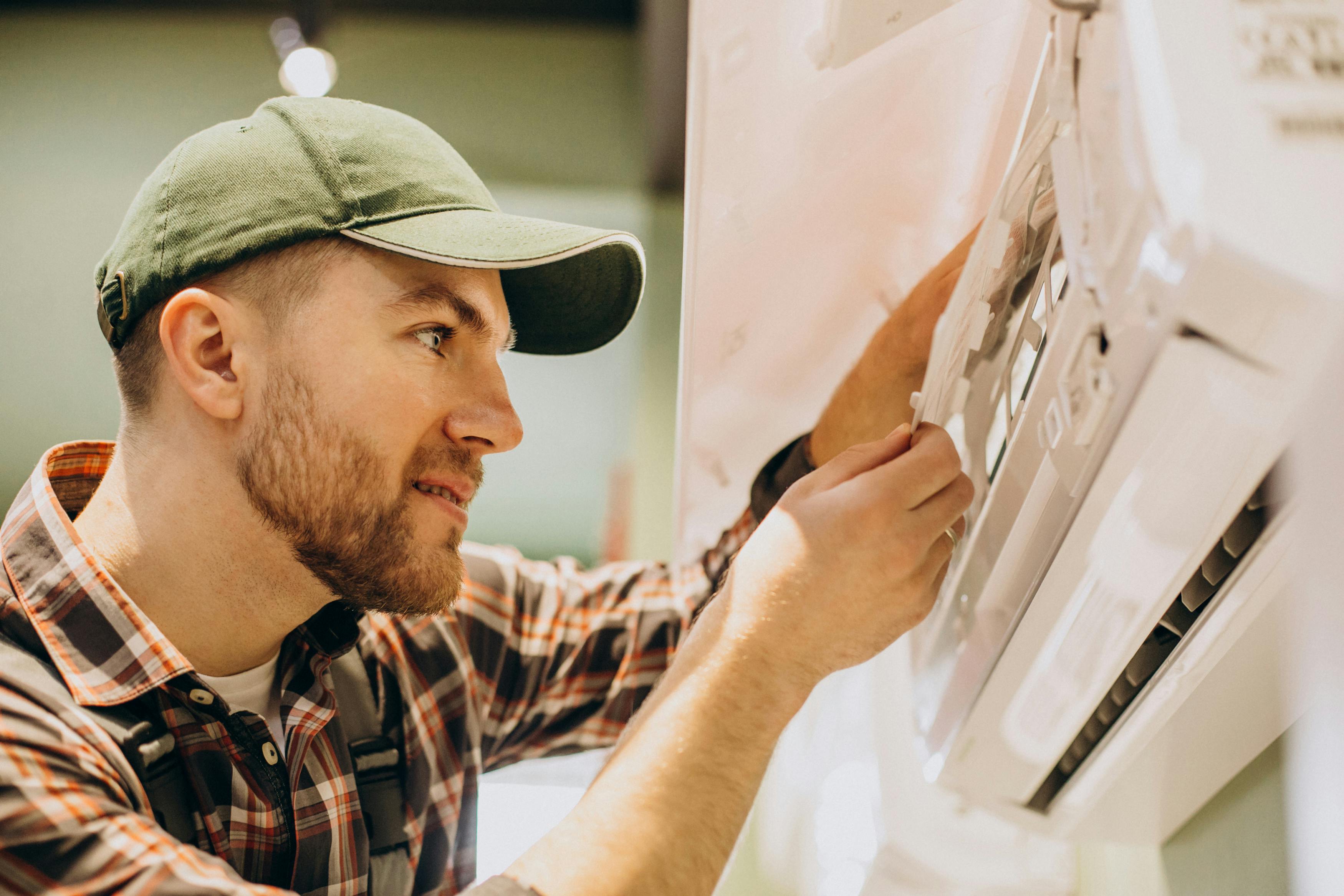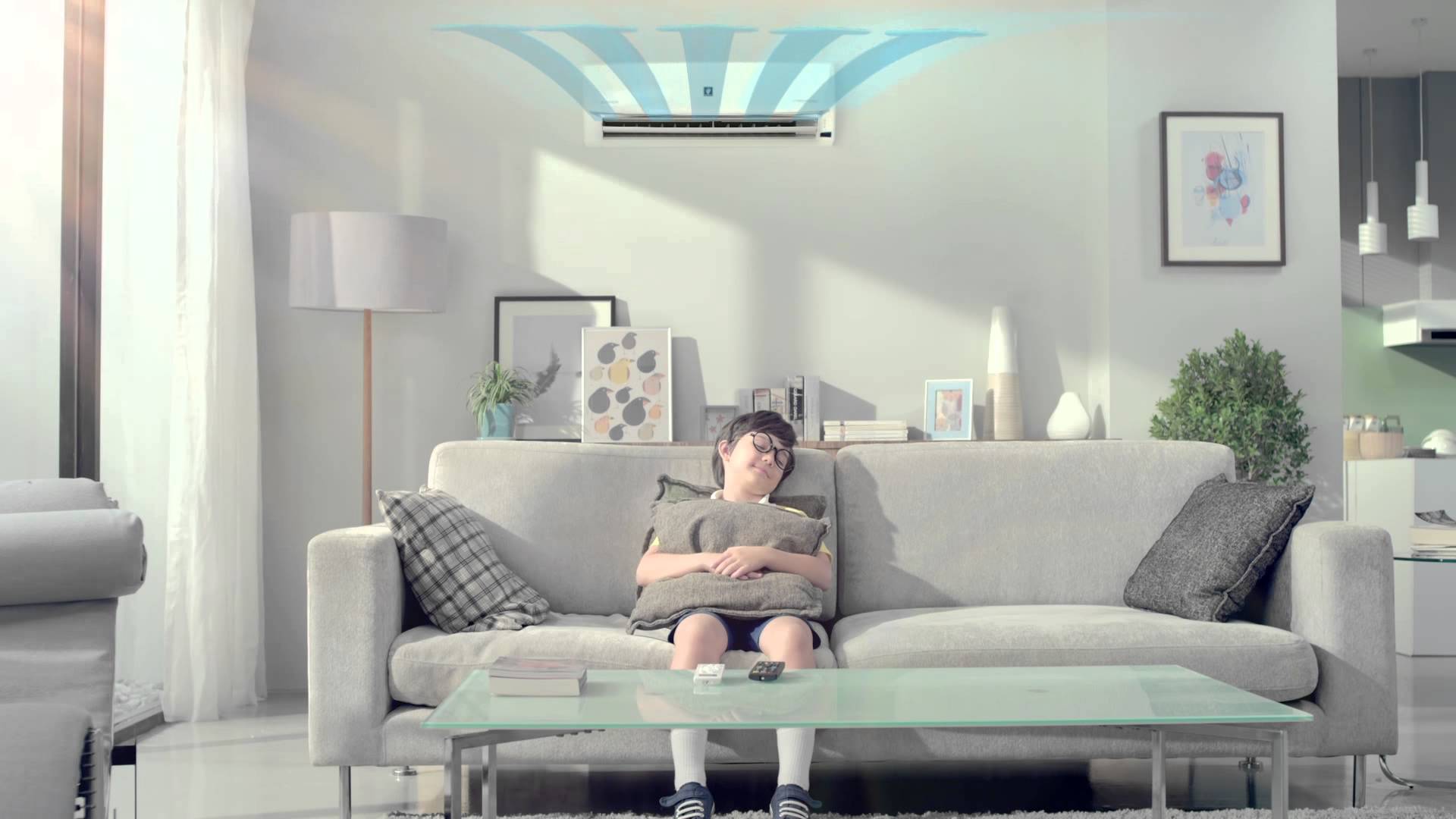
Aircon Gas Top Up in Singapore
Air conditioning systems require refrigerant gas like R22, R410A or R32 to function. So, low gas level or no gas can cause your air conditioner to not function properly. This can be identified by a measuring instrument which every aircon service professional carries with them.
If you have booked for a periodic aircon servicing package, make sure that gas level monitoring is included in the package. So that, if your aircon runs out of gas it can be identified easily and then refilled by the service provider. Usually gas top up will cost additional depending on the gas type your aircon uses.
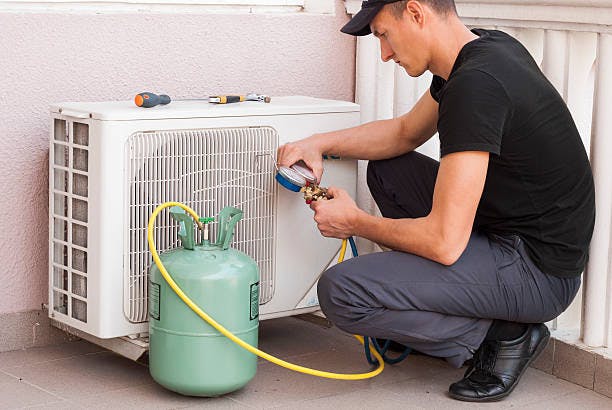
Aircon Gas Top Up Pricing
Aircon gas top-up pricing can vary depending on several factors, including the type of refrigerant used, the amount of gas required, the service provider, and the location.
In Singapore, the cost of aircon gas top-up services may range from approximately $80 to $200 or more, depending on the above-mentioned factors and any additional services or repairs needed.
It's essential to request quotes from multiple reputable air conditioning service companies to get a better idea of the current pricing for aircon gas top-up in your specific area.
Keep in mind that while price is a consideration, it's equally important to choose a reliable and experienced service provider to ensure that the gas top-up is performed safely and efficiently.
Rates Chart
| Gas type | Pricing |
|---|---|
| R410A | SGD 60 - SGD 150 |
| R32 | SGD 100 - SGD 200 |
| R22 | SGD 40 - SGD 100 |
How to find the refrigerant gas type for your aircon?
In Singapore, usually the gas type can be R22, R410A or R32. Most new air conditioners manufactured since 2010 uses R410A. So if you aircon is within 10 years old, most likely it uses R410A. Aircons that are manufactured before year 2010 most likely uses R22.
R32 is the newest refrigerant gas type which was introduced by Daikin in 2012.
Indications of low gas level in your Aircon
When the refrigerant gas level in an air conditioning system is low, several indicators may suggest there's an issue. It's important to note that these signs can also be caused by other air conditioning problems, so a professional technician should diagnose the system to pinpoint the exact issue. Here are some common indicators of low gas level:
1. Reduced Cooling Performance
One of the primary signs of low refrigerant is that your air conditioner won't cool your space as effectively as it used to. You may notice that the airflow feels weaker, and the air doesn't feel as cold.
2. Longer Cooling Cycles
If your air conditioner has to run for longer periods to achieve the desired temperature, it could be due to insufficient refrigerant, leading to decreased cooling efficiency.
3. Constant Running of Compressor
The compressor may run continuously or cycle more frequently than usual when the refrigerant level is low, as it tries to compensate for the reduced cooling capacity.
4. Ice Formation
Ice or frost forming on the evaporator coils or refrigerant lines is a clear indication of a potential refrigerant issue. Low refrigerant levels can cause the evaporator coils to get too cold, leading to ice buildup.
5. Hissing or Bubbling Noises
If you hear hissing or bubbling noises coming from the indoor or outdoor unit, it could be a sign of a refrigerant leak. Leaks should be addressed promptly, as they not only impact cooling efficiency but also harm the environment.
6. Higher Electricity Bills
Low refrigerant levels can lead to decreased system efficiency, causing your air conditioner to consume more energy to maintain the desired temperature.
7. Poor Airflow
Reduced refrigerant can affect the proper functioning of the expansion valve, leading to reduced airflow from the air conditioning vents.
If you observe any of these indicators, it's crucial to contact a qualified Aircon technician to inspect your air conditioning system. They can diagnose the problem accurately and perform any necessary repairs, which may include a refrigerant gas top-up if there is indeed a leak or low gas level. Remember that refrigerant handling should only be performed by licensed professionals due to safety and environmental considerations. Learn more about aircon gas leakage.
Types of A/C Refrigerant Gas
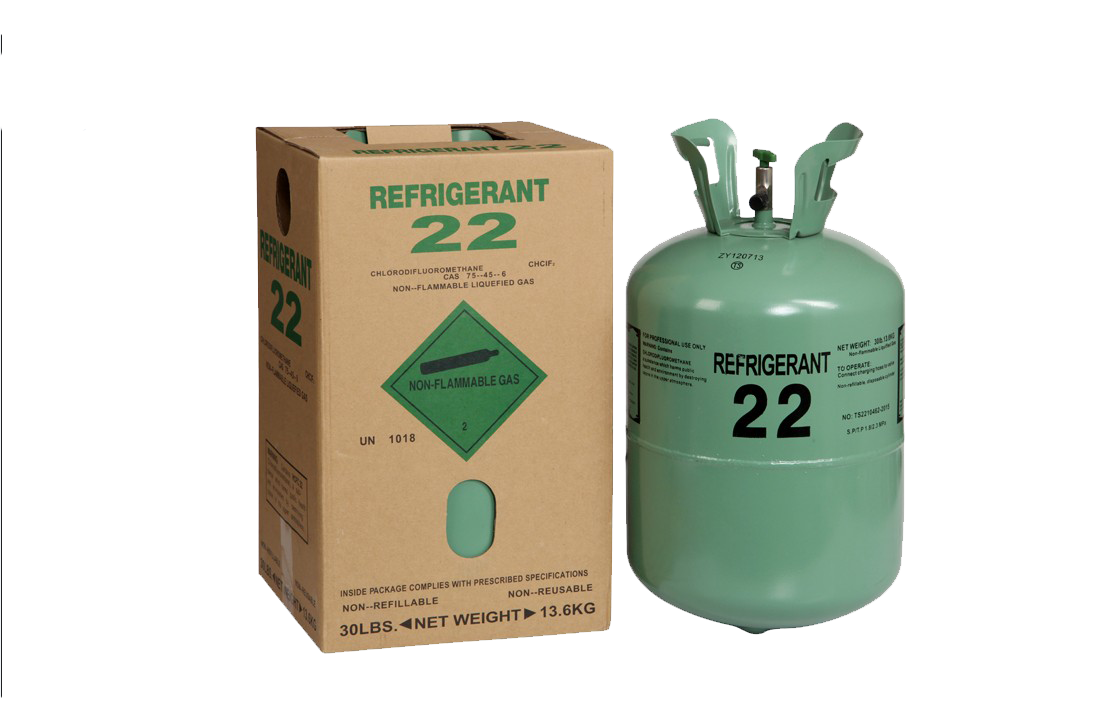
Performing an aircon chemical wash yourself can be a complex and potentially dangerous task, as it involves handling chemicals and working with electrical equipment. It is generally recommended to hire a professional technician to perform this task, as they have the necessary expertise and equipment to do it safely and effectively. However, if you still wish to proceed with a DIY approach, here are some general guidelines to consider:
1. R-22 (Chlorodifluoromethane)
Also known as Freon, R-22 was once a widely used refrigerant in air conditioning systems. However, it has been phased out in many countries due to its ozone-depleting properties, and its production and import have been gradually reduced under the Montreal Protocol.
2. R-410A (Puron)
R-410A is a hydrofluorocarbon (HFC) refrigerant commonly used as a replacement for R-22. It is more environmentally friendly because it does not contribute to ozone depletion. R-410A has become the standard refrigerant for many new air conditioning systems.
3. R-134a (1,1,1,2-Tetrafluoroethane)
R-134a is another HFC refrigerant used in automotive air conditioning systems and some commercial applications. It is non-ozone-depleting but still has a significant global warming potential, so its use is also subject to regulations.
4. R-407C
R-407C is a blend of HFC refrigerants designed to be a substitute for R-22 in existing systems. It does not harm the ozone layer, but like other HFCs, it has a high global warming potential.
5. R-32 (Difluoromethane)
R-32 is a single-component refrigerant with a lower global warming potential compared to many other HFCs. It is used in some newer air conditioning systems, particularly in residential units.
6. R-290 (Propane) and R-600a (Isobutane)
These hydrocarbon refrigerants have very low global warming potentials and zero ozone depletion potential. They are used in some small-capacity air conditioning systems, especially in countries with environmentally conscious regulations.
It's essential to note that the availability and use of refrigerants can change over time due to environmental regulations and industry developments. As a result, some refrigerants may become less common, and newer, more environmentally friendly alternatives may emerge.
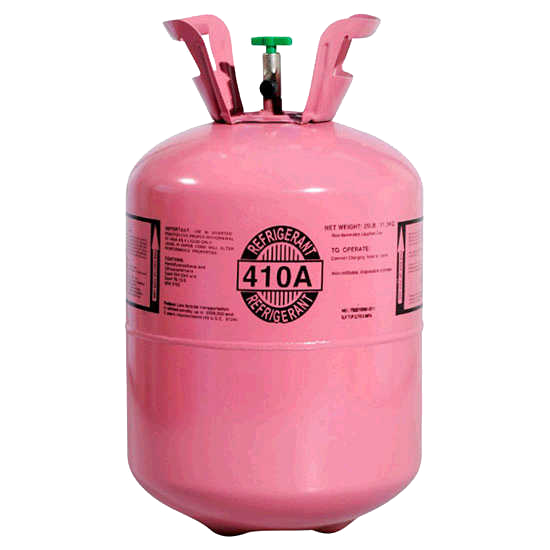
Should you top up aircon refrigerant gas yourself?
Attempting to top up aircon refrigerant gas yourself can be dangerous and is generally not recommended. Handling refrigerant gases requires specialized knowledge, equipment, and certifications due to their hazardous properties.
Refrigerant gases used in air conditioning systems, such as R-410A or R-22, are harmful to the environment and can be harmful if inhaled or mishandled. Additionally, working with refrigerants without proper training can result in leaks, equipment damage, and personal injury.
If you suspect that your air conditioning system is low on refrigerant or not cooling effectively, it's best to leave the task to a qualified and licensed HVAC (heating, ventilation, and air conditioning) technician. These professionals have the necessary expertise, tools, and certifications to handle refrigerants safely and recharge your system properly.
Why is your air con leaking water and how to fix
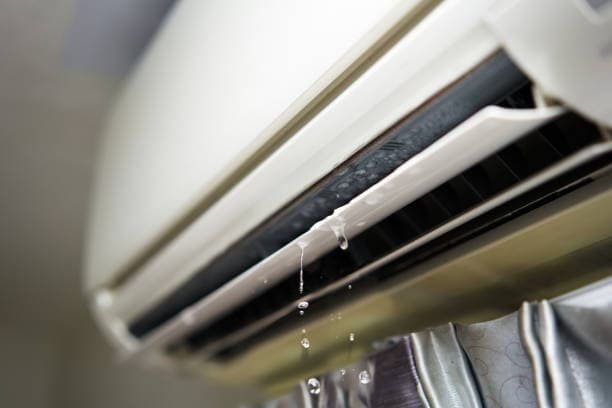
The indoor unit of your air con has a component called the evaporator coils which helps to cool the warm air. As warm air touches the condenser..
Repair Aircon Printed Circuit Board (PCB)
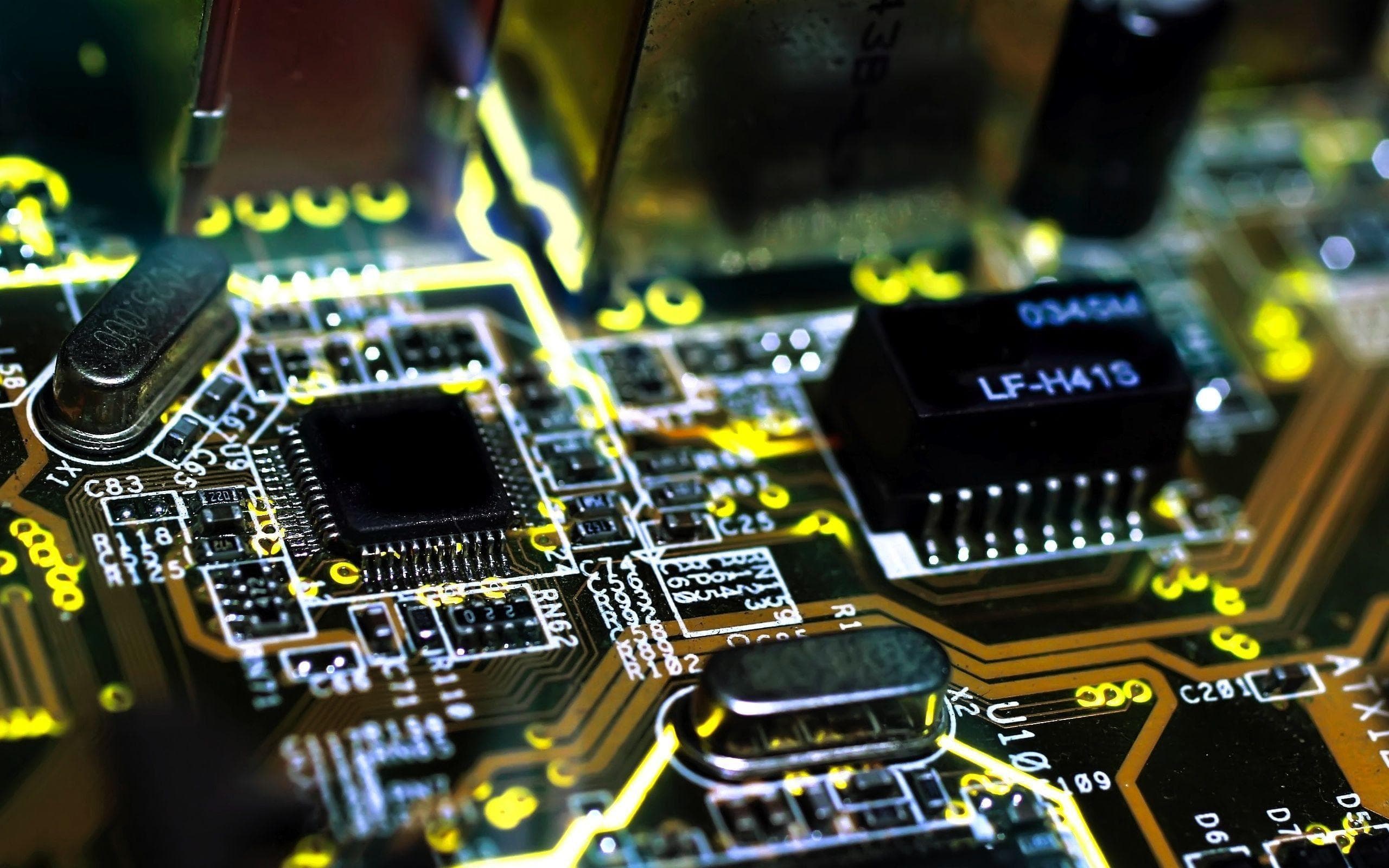
An aircon PCB (Printed Circuit Board) refers to the control or circuit board in an air conditioning unit that controls various functions of..
Aircon Thermistor Guide
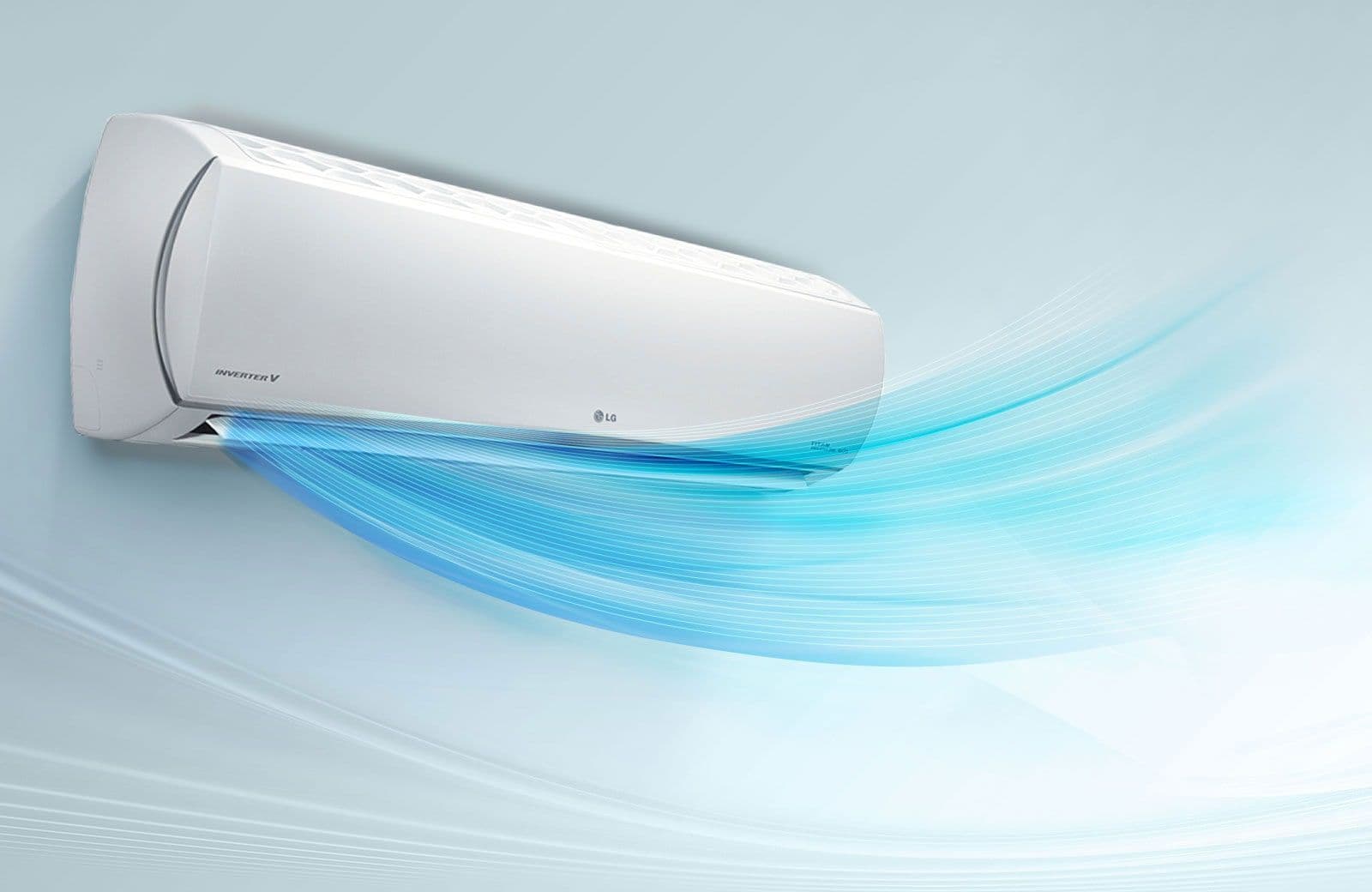
Aircon Thermistor replacement can cost anywhere between $120 to $250 based on several factors, such as the aircon brand/model, complexity of..
Aircon Condenser Cleaning & Repair
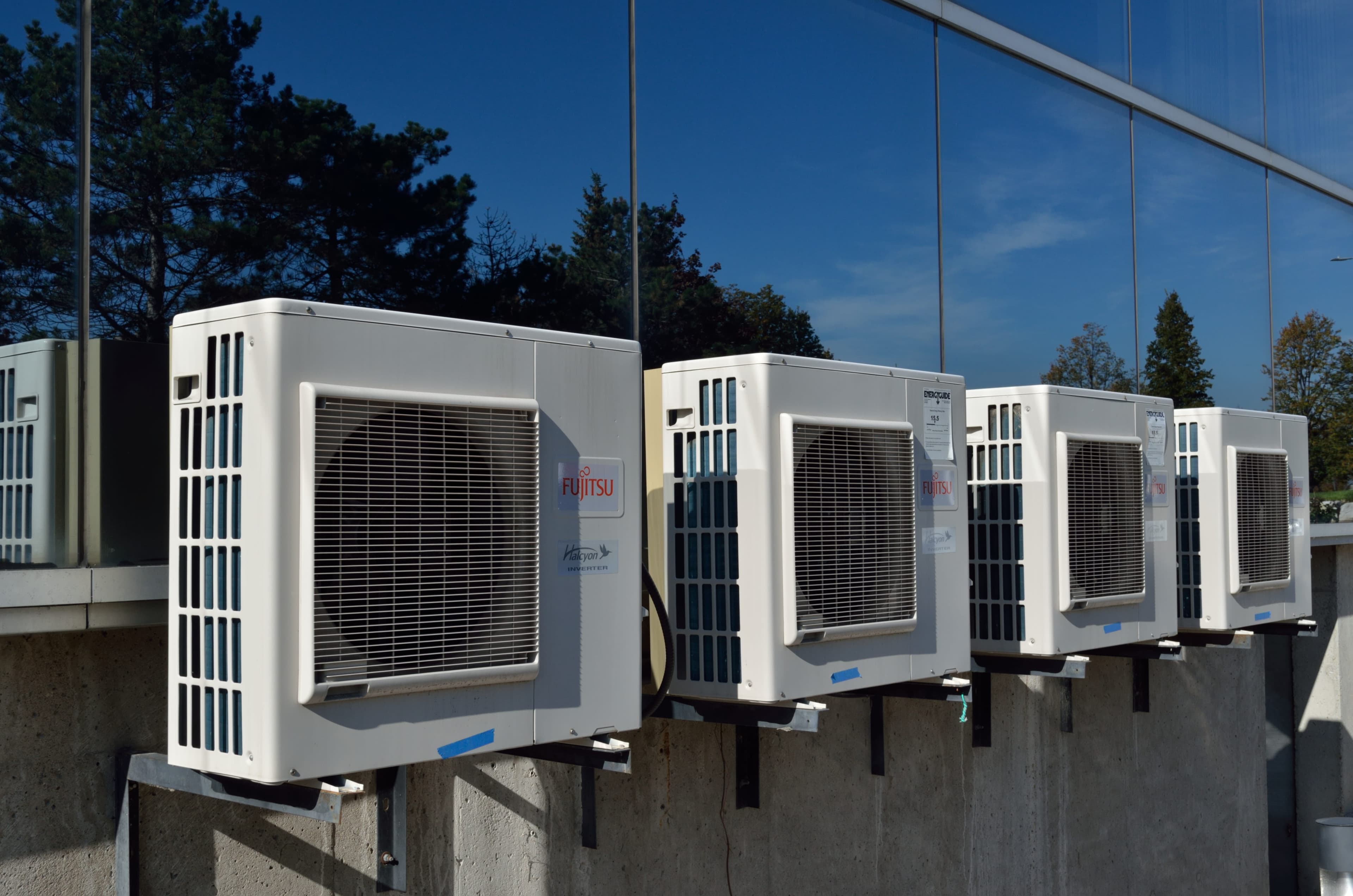
An aircon condenser (also known as an air conditioning condenser) is a vital component of an air conditioning system that helps to remove heat..
Complete Guide To Aircon Installation
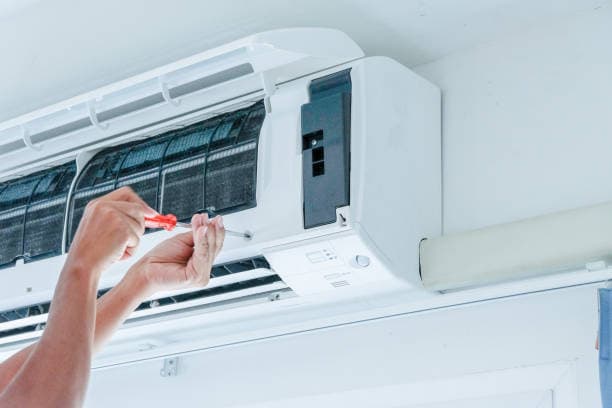
Moving in to a new house or just want to replace your Aircon? Everything you need to know about a new Aircon installation. Topic Highlights..
Fix Aircon Gas Leak | Leakage Indications & Repair Cost

Aircon refrigerant gas leakage is a common issue faced by air conditioning systems in Singapore. Learn more about the cause, indications..
Chemical Wash vs Chemical Overhaul
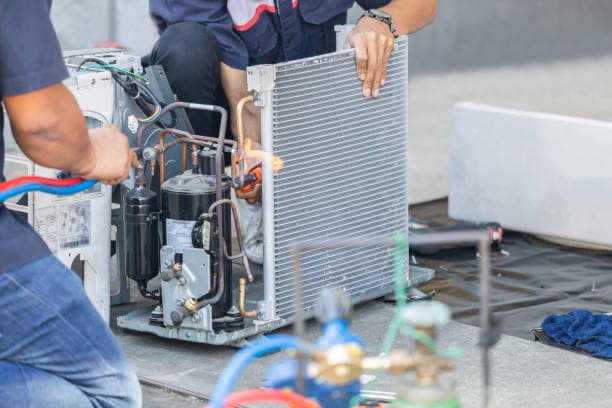
Often people get confused with these terms and what do they mean in terms of cleaning and expenses. The general purpose of a chemical wash..
Top 5 Reasons Why Your Air Conditioner Is Not Cooling
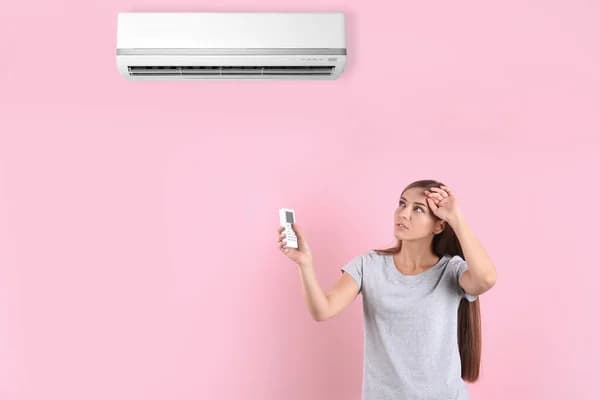
When your aircon is turned on but the air is not cold, it could mean many things like, the machine has run out of refrigerant gas..
Top 5 Reasons Why Your Air Conditioner Is Overheating
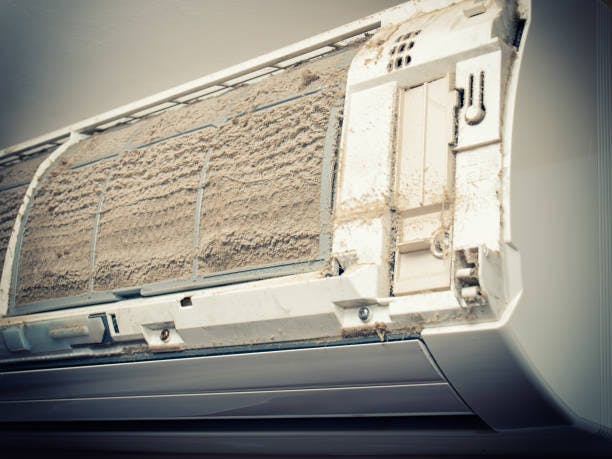
When your air con is working for long hours, it may overheat, which is the most common reason. Bad Or Dirty Air Filters- Air filter..
